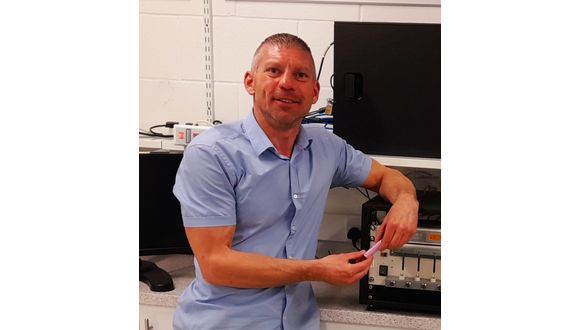Thu, 24 March, 2022
Teesside University’s professor of control engineering and systems informatics, Michael Short is presenting on the topic of ‘Smart Technology for Demand Response and Renewables Integration’ at Research for Impact 2022.
TWI has been working alongside Teesside University on a number of pioneering initiatives, including the establishment of innovation centres and uniting to deliver support to engineering technology-based companies in the Tees Valley region through the Tees Valley Innovation Accelerator.
Michael spoke to us about Teesside University, the importance of research and his presentation at R4i 2022…

Hi Michael, can you start by explaining a bit more about the importance of research for Teesside University, both for your students and wider industry?
Research is an increasingly import aspect of the University’s activities and is integral to our 2025 strategy. Research is what allows us, as individual academics and as an institute, to create new knowledge as well as impart it through teaching. The most rewarding teaching is when our research directly feeds into it, in terms of informing learning materials, and through opportunities for our students to start to engage with research through their final year projects. New knowledge can also be applied in interesting ways outside the University, and it is these activities which can benefit wider industry. Part of the challenge, however, is to find ways to apply research that gives real benefits to industry. This is where industry-led projects and innovation centres and hubs can leverage real benefits.
Why do you think collaboration, both with industry and academia, as well as other bodies, is so important for modern research and development?
In an age of technological disruption and increased competition through globalisation, the strengthening of science, technology and innovation and their alignment with government, industry and wider society is becoming a priority. It was one of the key recommendations from the UN in their technology and innovation report 2021 and was a core central element in the UK Government integrated review last year. It is also core to many EU policy frameworks and the Horizon Europe funding programme. Real-world impact gives the competitive advantage; it’s about being able to apply research in ways which are relevant for industry or society, and to increase TRLs to innovate viable business products. Impact from collaboration is a focus of the EU Green Deal and UK Net Zero strategy and is a key element of our university strategy.
Can you give us a little insight into what you will be speaking about during your presentation at R4i?
We have been actively working in areas related to smart energy at the University since I joined in 2010, including collaborative funded research and innovation projects through the EU, Innovate UK, DfT and other industrial contracts. In the talk, I will be giving an overview of some of this work, focussing on demand response and renewables integration and giving an outline of some of the results and impacts. I hope it will be interesting and informative!
R4i is concerned with aligning R&D with the strategies of the European Commission and the UK, why do you think it is important to have this focus to guide the direction of R&D?
Collaboration and inter-working between academia, industry with regional, national, and supra-national governments and unions on wider agendas and strategies seems to be the best way we can make effective progress on larger-scale problems, such as addressing climate change. It doesn’t necessarily mean that individual projects themselves must be of a huge scale – although big projects often leverage big impact - it is more the alignment and contribution to the bigger picture that really matters. If everyone co-ordinates and pulls in roughly the same direction, in their own specific way, then much larger things can start to happen.
You can register to attend Research for Impact 2022, here.